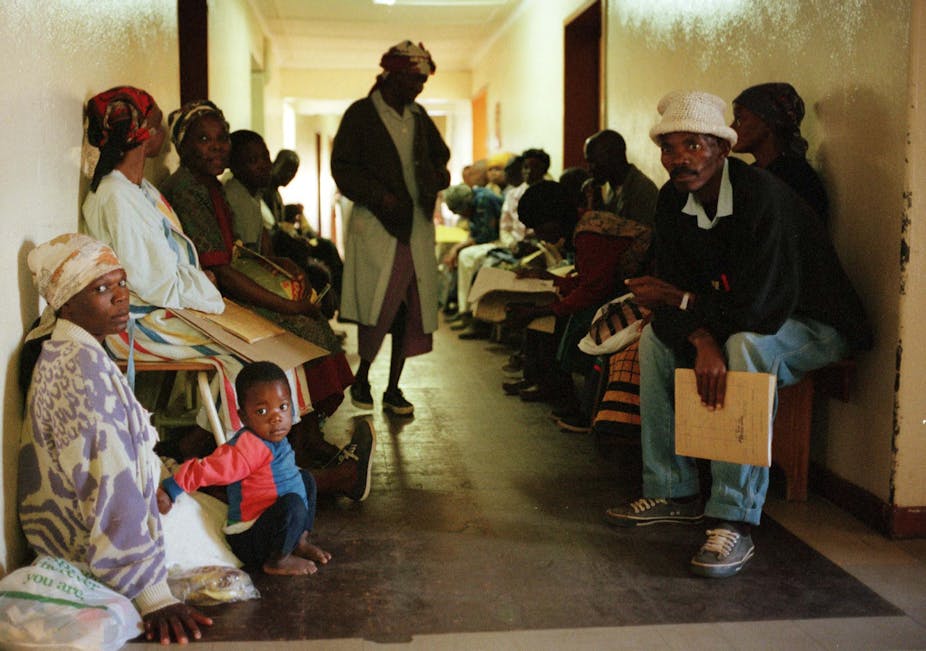New research, the first of its kind, has found that corruption is a problem in South Africa’s health sector. The nature of corruption, defined as the abuse of resources, power or connections for private gain, makes it difficult to assess. But an analysis of three sources of information shows the country has a problem that warrants serious attention.
According to the country’s National Development Plan, South Africa has high levels of corruption. In 2013 alone, the National Treasury allocated more than R70 million to the Public Service Commission “to combat corruption and address grievances”.
Our study found that to reduce corruption, South Africa needs:
-
the political will to run corruption-free health services;
an effective government that enforces laws; and
citizen involvement and advocacy to hold public officials accountable.
South Africa spends about 8.6% of its GDP on health. Of this, half is spent in the private sector catering for the socioeconomic elite. The remaining 84% of the population, who carry a far greater burden of disease, depend on the under-resourced public sector.
What the numbers say
Our study assessed information from three sources:
reports from the Auditor-General of South Africa for each province covering a nine-year period;
semi-structured interviews with health sector informants; and
newspaper articles covering corruption in the South African health sector over a three year period.
Based on the auditor-general’s reports, our study found that almost 6.3% of the combined provincial expenditure in South Africa was classified as irregular in the 2012-13 financial year.
Irregular expenditure reflects spending that does not comply with the necessary rules and regulations. It is not a proxy for corruption but can be an indirect measure for assessing corruption. Irregular or unprocedural spending does not always result in personal gain. But corruption of necessity involves irregular or unprocedural activities.
Our study revealed varying patterns of irregular expenditure across the nine provinces. In Gauteng, irregular expenditure amounted to R5.3 billion (US$533 million) between 2009 and 2012. Although there was an improvement in irregular expenditure as a proportion of the total health expenditure from 11% in 2010-11 to 4.8% in 2011-12, the figure increased again to 6.1% in 2012/2013. In contrast, KwaZulu Natal’s irregular spending as a proportion of the total health expenditure increased over the same four-year period.
There are a number of possible explanations for the differences across the nine provinces. These include:
Characteristics of provincial administrations;
Ineffective management;
Lack of enforcement of existing legislation;
Capacity constraints and different skill levels across provinces; and
Selection of officials in various provincial administrations.
A fuller picture
Key informants were selected from government, the private sector, academia, and NGOs. All held senior positions, were knowledgeable, and had been involved in the healthcare system for a long time.
They all believed that there is corruption in the South African healthcare system, across both the public and private sectors. They all had personal experiences of hearing about or dealing with an incident of corruption in the year preceding the study. The majority felt corruption was rampant and had reached uncontrollable levels, particularly in the public health sector.
More than 60% of the newspaper articles on corruption were from the public sector and mainly involved provincial health departments. In more than half of the reports on corruption, the Eastern Cape province was cited, followed by Gauteng, Limpopo, and KwaZulu-Natal.
Strategies to address corruption
To address corruption, more regulation to control the behaviour of public servants is often recommended. But South Africa does not need more legislation. It has institutions with extensive powers, numerous laws, and formal and detailed rules and procedures.
Aside from the Auditor General’s mandate to improve accountability and governance in the public sector, there are also Public Service and Public Finance Management Acts. These contain detailed prescripts to regulate the behaviour of public sector employees and manage public resources.
What is needed instead is for staffing levels, competencies and capacity to implement anti-corruption initiatives to be addressed as a matter of urgency. This proposition is made in light of:
the varying levels of irregular spending across the nine provincial health departments;
worsening audit outcomes of provincial health departments;
the crisis of ineffective management and lack of accountability in the health system.
To assist the fight against corruption, strategies must ensure that public servants have the right skills, ethos and values in place. Their interest must be aligned with organisational goals. Appropriate systems must be in place to detect corruption and sanction inappropriate, illegal, or corrupt behaviour.
Public sector managers must have sufficient authority to prevent and take action against corruption. They also need to be given the capacity to ensure that existing laws are enforced.
Another important component is an active citizenry. Structures do exist through which citizens can have a say in the health system and hold public officials accountable. At a formal level, these include public participation committees in national parliament and provincial legislatures, hospital boards and clinic committees.
At an informal level, South Africa has a vibrant civil society movement, including Corruption Watch, which is increasingly vocal about the need to address corruption. Experiences in other countries show that civil society groups that provide financial monitoring, service delivery reports and advocacy play an important role in combating corruption.

